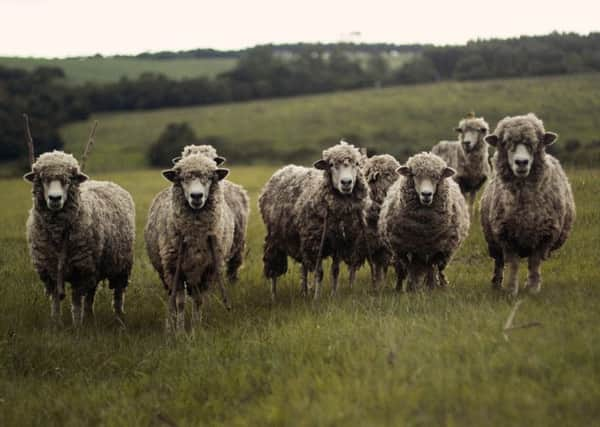Livestock worrying reports up by 55%


Police officers investigated all reported incidents, and 60% were detected and the dog owner or person responsible reported to the Procurator Fiscal.
The bulk of the offences reported were in Aberdeenshire, Highlands and Islands, and Lanarkshire. Sheep were by far the most common animal affected. In 79% of incidents, livestock were killed and/or injured, and on average this involved two or three sheep per incident.
Advertisement
Hide AdAdvertisement
Hide AdMost incidents (70%) involved only one dog. In nearly three quarters of cases, (73%), the offending dog was local to that area, with more than half of all incidents involving a dog roaming free and where no owner/responsible person was present.
Inspector Jane Donaldson, Police Scotland Rural Crime Co-ordinator said: “Livestock worrying has previously been under-reported. Farmers were often reluctant to report incidents to police, particularly where there was a ‘near miss’ and no physical damage was done to their livestock.
“A significant part of the Spring campaign was to get this message out to farmers and encourage them to report all incidents and I think that this is reflected in the increase in reported crimes.
“More accurate reporting has improved our understanding of the problem, increasing intelligence about the how, where and why these incidents are occurring.”
Advertisement
Hide AdAdvertisement
Hide AdThe advice to anyone walking and exercising their dogs in the countryside is to ensure they are under control at all times and avoid going into fields where livestock is grazing. The Scottish Outdoor Access Code says that dogs shouldn’t be taken into fields where there are lambs or other young farm animals.
Farmers and those who use the countryside are urged to report all incidents of livestock worrying to police on 101 or 999 in an emergency.
Gemma Thomson, Policy Manager with the National Farmers Union Scotland, said, ‘NFUS is pleased that Police Scotland is taking such a keen interest in this issue. NFUS members, particularly those on urban fringes or heavily used recreational spaces continue to be victimos of this crime. There is still a real issue with under reporting, and we would urge anyone who is affected by livestock worrying to ensure they report this.’
Anne Gray, Policy Officer with Scottish Land & Estates said: “We are very pleased with how successful this year’s campaign has been and we will continue to support the initiative going forward. It is vital that livestock worrying incidents are reduced. No-one wants to see this type of completely unnecessary suffering and the higher the profile of these incidents the more, we hope, it will prompt the small minority of irresponsible dog owners to change their ways and ensure they know where their dog is at all times.”
Advertisement
Hide AdAdvertisement
Hide AdTheresa Kewell, Policy & Advice, Communication at Scottish Natural Heritage said: “We’re extremely pleased so many dog walkers visited the Scottish Outdoor Access Code website to find out more about how to safely walk their dog when it’s lambing time. Any incident involving animals can be traumatic for all concerned so we continue to encourage all dog walkers to find out how to be the most responsible at any time of year, by taking a look at the advice at jessthedog.org.uk.”